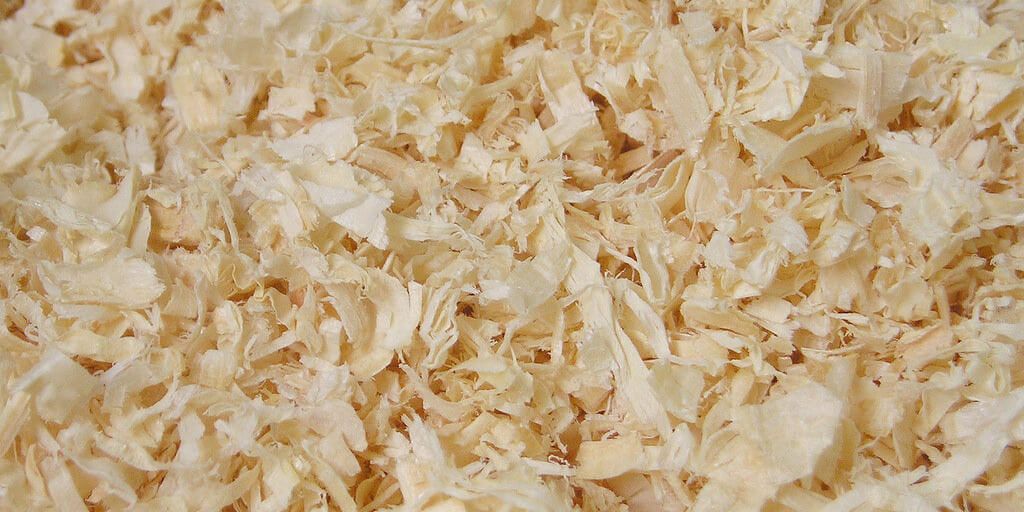Psyllium Seed Husks are the outer coverings of the seeds of the plant Plantago ovata, a native of India and Pakistan. These husks are a rich source of dietary fiber, specifically soluble fiber. Soluble fiber absorbs water and forms a gel-like substance in the digestive tract, which can help regulate bowel movements, promote a feeling of fullness and support digestive health.
Psyllium Husk Health Benefits
Psyllium husk has several health benefits, which we will explore below:
Supporting Digestive System
Psyllium husks are commonly used as a dietary supplement to help alleviate constipation, diarrhea and other digestive issues. Psyllium soaks up a significant amount of water in the digestive tract, thereby making stool firmer and, under these circumstances, slower to pass. Psyllium also has the additional advantages over other sources of fiber of reducing flatulence and bloating.
Lowering Cholesterol
Research reported in The American Journal of Clinical Nutrition concludes that the use of soluble-fiber cereals is an effective and well-tolerated part of a prudent diet for the treatment of mild to moderate Hypercholesterolaemia. Soluble fibers such as those in psyllium husk, guar gum and oat bran have a cholesterol-lowering effect when added to a low-fat, low-cholesterol diet.
Studies reported in The American Journal of Clinical Nutrition have shown psyllium to be quite effective in lowering total as well as LDL (“bad”) cholesterol levels, which can be helpful to those with high cholesterol, and those at increased risk for developing hypercholesterolemia, such as people with type 2 diabetes.
Relieving Ulcerative Colitis
In a study of people with ulcerative colitis (a type of inflammatory bowel disorder), psyllium seeds were as shown to be as effective as the prescription drug mesalamine in decreasing recurrences of the disease.
Relieving Constipation
Psyllium husks are known for their laxative effects and are often used to alleviate constipation by adding bulk to the stool and promoting regular bowel movements.
Managing Diarrhea
Despite being a bulk-forming laxative, psyllium husks can also help manage diarrhea by absorbing excess water in the digestive tract and firming up loose stools. Psyllium is recommended as a bulking agent for mild to moderate cases of diarrhea from either ulcerative colitis or Crohn’s disease (another type of inflammatory bowel disorder).
Relieving IBS
Psyllium has been used for irritable bowel syndrome, also known as IBS, (a stress-related disorder with alternating bouts of diarrhoea and constipation).
Soothing Haemorrhoids
Because it will produce easy bowel movements with a loose stool, Psyllium is used by patients with anal fissures (cracks in the skin near the anus) and haemorrhoids and is often recommended following anal or rectal surgery, during pregnancy and as a secondary treatment in certain types of diarrhoea. It may be recommended by a physician to help soften stool and reduce the pain associated with haemorrhoids.
Promoting Heart Health
The soluble fiber in psyllium husks may help lower cholesterol levels by binding to cholesterol in the digestive tract and promoting its excretion from the body. This can potentially reduce the risk of heart disease and improve heart health. In addition, the oil in the seed embryo contains 50% linoleic acid and has been used as a preventative of atherosclerosis.
Regulating Blood Sugar Levels
Soluble fiber can slow down the absorption of sugar into the bloodstream, which may help regulate blood sugar levels. This can be beneficial for individuals with diabetes or those at risk of developing diabetes.
Supporting Weight Loss
Psyllium is used in weight control and for general intestinal health. It is one of the simplest, healthiest and most effective herbs for weight control. It contains a spongy fiber that reduces appetite, improves digestion and cleanses the system, making it an excellent choice for healthy dieting.
Studies and clinical reports suggest that psyllium may enhance the sensation of fullness and reduce hunger cravings. For these reasons, incorporating psyllium and other sources of fiber into the diet may aid weight loss. Psyllium husks can promote a feeling of fullness and satiety when consumed with water, which may help reduce appetite and calorie intake, potentially supporting weight loss efforts.
Providing Fiber
Psyllium husk is quickly becoming one of the top recommendations for people using low-carb Atkins-style diets as it is very difficult to get enough fibre in a diet when you eliminate the carbohydrates in cereals, whole grains and fruits.
Psyllium capsules are an easy way to take care of this problem. It fills you with fibre, reducing appetite without over stimulating the nervous system; a much healthier approach than formulas containing ephedra. Psyllium can provide the fiber that is missing on low carbohydrate diets. Every 100 grams of psyllium provides 71 grams of soluble fiber; a similar amount of oat bran would contain only 5 grams of soluble fiber. Only recently have scientists learned that soluble fiber has unique effects on metabolism.
Reducing Flatulence and Bloating
Psyllium soaks up a significant amount of water in the digestive tract, thereby making stool firmer and, under these circumstances, slower to pass. Psyllium also has the additional advantages over other sources of fiber of reducing flatulence and bloating.
How To Take Psyllium Husk
Psyllium husk can be found in various forms, including; whole husks, powdered husks and capsules. Psyllium husk supplements are often mixed with water or other liquids and consumed as a drink. They can also be added to foods like smoothies, porridge, yogurt or baked goods to increase their fiber content.
For those simply wishing to improve digestion and intestinal tract health, a single capsule per day is all that is needed. Just take one or two capsules with a glass of water or Yerba Mate diet tea, half an hour before meals.
t’s important to drink plenty of water when consuming psyllium husk supplements to prevent dehydration and ensure the fiber can work effectively in the digestive tract.
Always take care when taking herbs and Read Our Disclaimer.
Psyllium Husk Herb Notes / Side Effects
Do not use Psyllium if you have a bowel obstruction or a disease that causes narrowing of any part of the digestive tract.
Diabetics should avoid Psyllium if they are having problems keeping blood sugar levels under control.
Take Psyllium Husk with plenty of water, as without adequate fluid may cause it to swell and block your throat or esophagus and may cause choking. Do not take this product if you have difficulty in swallowing.
Individuals with certain medical conditions or those taking medications should consult with a healthcare professional before incorporating psyllium husks into their diet to avoid any potential interactions or adverse effects.
Latin Name
Plantago ovata
Common Names
Sand Plantain, Flea Seed, Ispaghula, Psyllium Seed, Indian Plantago, Spogel, isabgol, psyllium, isabgol, blond psyllium, Indian plantain
Properties of Psyllium Husk
Anti-diarrhoea, demulcent, emollient, laxative
Psyllium Husk is Indicated for:
Constipation, Diarrhoea, High cholesterol, Inflammatory Bowel Disease, Colon Cancer, Heart Disease, High Blood Pressure, Hemorrhoids, Diabetes, Hypercholesterolemia and Obesity. Treatment of dysentery, catarrhal conditions of the genitourinary tract, inflamed membranes of the intestinal canal, atherosclerosis.



Leave a Reply